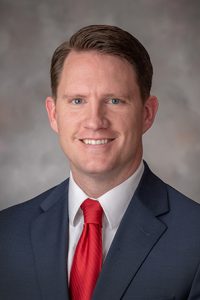New midwife licensure category proposed
A measure that would create a procedure in Nebraska law for licensure of certified professional midwives was considered by the Health and Human Services Committee Feb. 5.
Currently, only certified nurse-midwives are authorized to practice in Nebraska and may do so only in a hospital or birthing center and under the supervision of a licensed practitioner. Individuals who hold a CNM credential must be licensed as a registered nurse and complete a nurse-midwifery education program.

LB374, introduced by Blair Sen. Ben Hansen, would add certified professional midwife as a new category of state licensure under the Uniform Credentialing Act. The bill would create a Board of Licensed Midwives and a CPM licensure process.
Under the bill, a licensed CPM would be authorized to attend physiological childbirths, provide prenatal, postpartum and newborn care for up to six weeks after birth.
Hansen said that with passage of LB374, Nebraska would join 37 other states in recognizing that certified professional midwives are knowledgeable, skilled maternity care providers.
“In most other states, home births and licensed professional midwives are influential and respected in the birthing community,” he said. “It is time Nebraska catches up.”
Chandra Stewart, a certified professional midwife, testified in support of the bill. CPMs are experts in out-of-hospital births and receive extensive training in risk assessment for potential complications during and after pregnancy, she said.
“It’s important to note that home births are happening in Nebraska already, they’re just happening without the benefit of a trained professional there to assist,” Stewart said. “Licensing CPMs simply makes home births safer for the families in Nebraska who choose to give birth outside of the hospital.”
Gabriella Otto also spoke in support of the proposal, saying it is especially important for women of color to have access to various birthing options.
Otto said data from the Centers for Disease Control and Prevention indicate that Black women in the U.S. are 2.6 times more likely than white women to die while giving birth in a hospital. As a result, she said, studies show a 30% increase in the number of Black women choosing to deliver at home.
“Black mothers have a desire for more control over their birthing experiences,” Otto said.
Amy Pinkall, a pediatric physician, testified on behalf of the Nebraska chapter of the American Academy of Pediatrics in opposition to LB374. She said the lack of medical training required to become a CPM is a concern in emergency situations.
Pinkall said infant mortality rates for out-of-hospital deliveries by a lay midwife are up to 4 times higher than those for infants delivered in a hospital. In addition, she said, approximately 10% of full-term deliveries require some degree of intervention, so having trained providers who are able to assess infants and intervene immediately if necessary is critical.
“This bill is unsafe and puts at risk the lives of our smallest and most vulnerable newborns,” Pinkall said.
OB-GYN Molly Johnson shared those concerns. Testifying on behalf of the Nebraska Medical Association and Nebraska Nurse Practitioners, she said many conditions, including postpartum hemorrhaging, infection and fetal distress, can become life-threatening emergencies in seconds.
Most of these scenarios occur in what previously had been a “normal” pregnancy and labor, she added.
“Unlike hospital-based deliveries, the home birth setting … lacks the necessary resources to manage obstetric emergencies,” Johnson said.
The committee took no immediate action on LB374.


